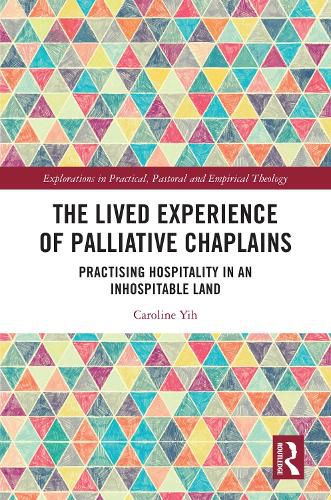Readings Newsletter
Become a Readings Member to make your shopping experience even easier.
Sign in or sign up for free!
You’re not far away from qualifying for FREE standard shipping within Australia
You’ve qualified for FREE standard shipping within Australia
The cart is loading…






This book explores the unique challenges of disenfranchisement faced by Christian chaplains working within the secular and pluralistic context of contemporary healthcare. The case study focuses on practitioners in Hong Kong and showcases the utilisation of interpretative phenomenological analysis (IPA) as a fruitful basis for practical theological endeavours. The role and perspective of the palliative chaplain as spiritual care specialist is examined, along with the tension that exists with the cultural and organisational context in which they operate. The chapters examine how end of life care practitioners can often face marginalisation, oppression, vulnerability, and disorientation among other difficult experiences that the author unites under a general theme of "homelessness". The book contributes to discussions regarding fuller integration of the spiritual dimension within a holistic vision of end of life care provision. It will be of particular interest to scholars of practical theology and chaplaincy, as well as palliative medicine.
$9.00 standard shipping within Australia
FREE standard shipping within Australia for orders over $100.00
Express & International shipping calculated at checkout
This book explores the unique challenges of disenfranchisement faced by Christian chaplains working within the secular and pluralistic context of contemporary healthcare. The case study focuses on practitioners in Hong Kong and showcases the utilisation of interpretative phenomenological analysis (IPA) as a fruitful basis for practical theological endeavours. The role and perspective of the palliative chaplain as spiritual care specialist is examined, along with the tension that exists with the cultural and organisational context in which they operate. The chapters examine how end of life care practitioners can often face marginalisation, oppression, vulnerability, and disorientation among other difficult experiences that the author unites under a general theme of "homelessness". The book contributes to discussions regarding fuller integration of the spiritual dimension within a holistic vision of end of life care provision. It will be of particular interest to scholars of practical theology and chaplaincy, as well as palliative medicine.